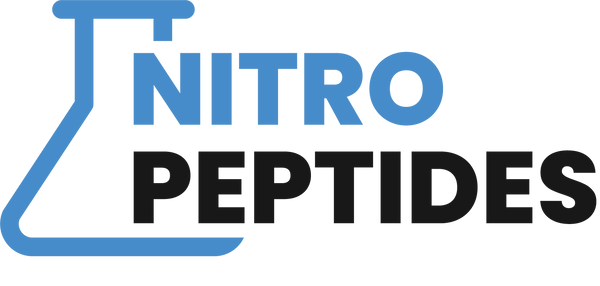Nitro Peptides
KPV
KPV
In stock
Couldn't load pickup availability
KPV Peptide – promising research product for anti-inflammatory and recovery
KPV is a peptide that is currently being intensively researched for its potential role in anti-inflammatory, immunomodulation, and tissue recovery. Scientists choose to order KPV due to its wide range of applications in laboratory studies. The peptide is of particular interest in research on inflammation-related conditions such as inflammatory bowel diseases (IBD), skin conditions (eczema, psoriasis), and general wound healing.
Mechanism of KPV according to current research
There is evidence that KPV inhibits certain inflammatory pathways and modulates the immune system, which can promote the healing process. For example, the peptide appears to suppress the production of pro-inflammatory cytokines (such as TNF-α and IL-6) and counteract oxidative stress. Additionally, KPV is being studied for its effects on the gut barrier and skin, making it widely applicable in various research models.
Moreover, animal studies indicate that KPV can protect the integrity of the intestinal wall and reduce inflammation in the gastrointestinal tract. This makes it an interesting peptide within various research fields, from gastroenterology to dermatology.
What's in the package?
- 1 vial with 10 mg KPV peptide (lyophilized)
- Bacteriostatic water
- Several needles for reconstitution (0.5ml - 0.30 x 8mm)
- Alcohol wipes for optimal hygiene
- A small extra gift as a thank you for your order
Ordered today, shipped tomorrow (on working days). Discreet packaging for privacy.
Storage
- Application: Delivered in powder form (lyophilized)
- Storage: Store refrigerated after reconstitution (2–8°C)
- Stability: Stable for up to 30 days after reconstitution
Guaranteed quality
Each batch of KPV is thoroughly tested for purity and sterile properties. We guarantee 99% purity with accompanying COA report, visible with the product photos.
Note: For Research Use Only
This product is intended exclusively for preclinical and laboratory research. Not approved for human consumption or therapeutic use.
Ordered today, shipped tomorrow (on working days). Packaged in discreet packaging for privacy.
Want to learn more about peptides?
Check out our extensive blog about peptides for scientific background and updates. Check our blog page for even more articles.


Collapsible content
What is KPV
How does KPV work
KPV in preclinical research
Application areas & research focus


